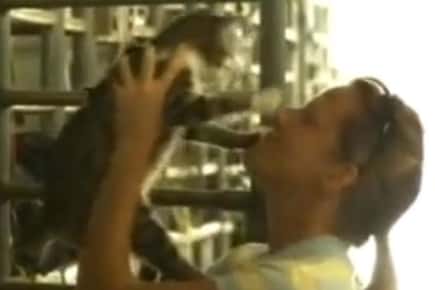
Essentially, microchips are computer chips about the size of a grain of rice. Easily implanted under your pet's skin by a hypodermic needle, microchips provide permanent identification that won't wear out, fade, or get lost if the pet runs away. Special scanners find the microchip and can translate into a specific ID code. These unique numbers can then be found on a database and, with luck, the owners can be contacted and the family will be together again.
A lost microchipped dog named Romie almost lost her life because there are multiple chips being marketed today with at least four different types of frequencies. The ISO Conformant Full Duplex type of chip is considered to be the international standard and is used in many countries, but there are at least three other types of chips exist, which are especially common the the United States. In the case of Romie, one type of chip was implanted but the local animal shelter was using a scanner designed for a different type and actually missed Romie's chip!
Luckily, a shelter employee recognized Romie and was able to contact her owner promptly. This confusion of frequencies has caused a storm of controversy. According to Dr. Dan Knox of the AVID Company, these multiple frequencies will continue to put pets at risk by confusing the system. "Adding new frequencies will only cause more work for under-staffed shelters and will potentially be dangerous to pets."
Another major issue is that many pets are not properly registered. In fact, Michael Gendreau, product manager for the ResQ® ISO chip manufactured by the Bayer Company states that less than half of microchipped pets have been entered accurately into any database - a major fault with this system. Ms Lutz agrees and adds that it is common for people to move and change addresses, "With everything that happens in a move, how many people will remember to change the address and phone number for their pet's microchip?" This is why old fashioned methods, such as ID collars or the free "get me home tag" (www.getmehome.com) should be used along with the microchip.
Facts About Microchips
- Microchips are small computer chips about the size of a grain of rice. They have unique ID numbers that can be read by electronic scanners.
- While there is the ISO international standard for chip frequencies, there are three additional frequencies of microchips in use, especially in North America, and unfortunately not all scanners can read all 4 types of microchips..
- Leading veterinary organizations and animal welfare groups are calling for the use of "universal" scanners to help prevent these issues.
- Beyond incompatibility of scanner and chip, another major problem is that many pets with microchips are never registered properly in an easily accessible database. When pets are not registered properly, it can lead to delays or even prevent reunions with the pet's family.
- Microchips are wonderful and powerful tools to help keep our pets safe, but until certain issues are resolved, this high tech pet ID is not fool-proof and should be supplemented with additional forms of identification such as old fashioned collars with ID tags.

